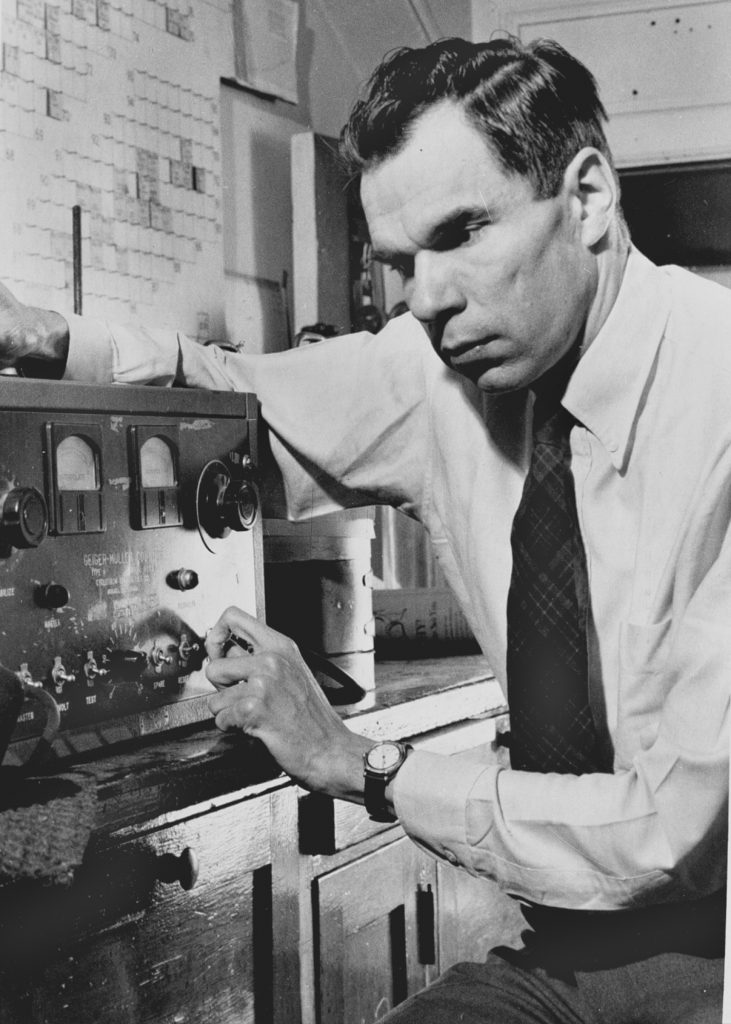Glenn Seaborg (1912-1999) was an American nuclear chemist and winner of the 1951 Nobel Prize in Chemistry.
During World War II, much of Seaborg’s research was directed toward understanding the chemistry of plutonium. In February 1941, Seaborg and his colleagues produced plutonium-239 through the bombardment of uranium. This experimental achievement proved to be a major contribution in physicists’ understanding of atomic fission.
On March 28, 1941, Seaborg, physicist Emilio Segre and Berkeley chemist Joseph W. Kennedy were able to demonstrate that plutonium underwent fission with slow neutrons, an important distinction that was crucial to the decisions made in directing Manhattan Project research. Seaborg also helped to develop the extraction process used to isolate the plutonium fuel for the “Fat Man” bomb.
In 1942 Seaborg joined the chemistry division at the University of Chicago’s Metallurgical Laboratory. Seaborg was responsible for determining how to extract and isolate plutonium from uranium. His work was developed into industrial processes for producing plutonium at Hanford, WA.
Scientific Contributions
Seaborg was the principal or co-discoverer of 10 elements. He received patents for the element americium and curium.
After the war Seaborg returned to Berkeley as an academic while also directing the Lawrence Radiation Laboratory, part of the US Atomic Energy Commission. He was awarded the Nobel Prize in Chemistry for “discoveries in the chemistry of the transuranium elements.” He served as a member of the General Advisory Committee of the Atomic Energy Commission until 1960. From 1958 to 1961 he was chancellor of Berkeley, and his term paved the way for the Free Speech Movement of the mid-1960s.
During the Eisenhower administration he was a member of the President’s Science Advisory Committee, and became chairman of the Atomic Energy Commission from 1961 to 1971. During his tenure he was on the negotiating team for the Limited Test Ban Treaty between the US, UK, and USSR. Seaborg also influenced President Johnson’s administration to pursue the Nuclear Non-Proliferation Treaty, and was called on as a nuclear advisor for President Nixon.





